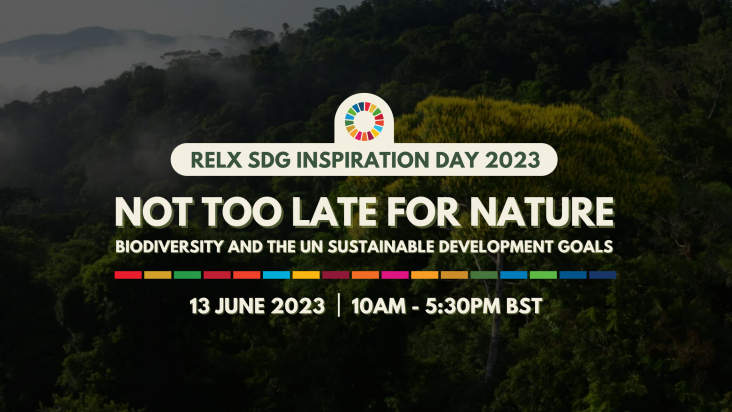
Sea urchins are one of the most amenable model systems in developmental biology and they have enabled major discoveries. In this study, the authors investigated how conserved the genomic and regulatory architecture is between P. lividus, other sea urchins, and chordates. By integrating genomic and regulatory datasets, they demonstrated how regulatory changes could be associated with the origin of the novel body plan of urchins and other echinoderms.
The survey presented here was conducted to better understand public perceptions of climate change, human impacts and the value and management of marine and coastal ecosystems.
This chapter aligns with Goal 14: Life Below Water and Goal 6: Clean Water and Sanitation by describing advancements in the use of melt electrospun nanofibers for use in marine oil spill cleanup.

Register today for the ninth RELX SDG Inspiration Day - a free, online event for thought leaders, corporate representatives, students, investors, government and NGOs to explore issues, gain practical insights and be inspired to take action in support of the UN Sustainable Development Goals.
This chapter aligns with Goal 14: Life Below Water and Goal 9: Industry, innovation and infrastructure by highlighting the biodiversity of marine biofilms in the context of marine infrastructure.
This review artcile, with contributionsform allover the world, describes various approaches to convert plastic wastes into new products known as an efficient way to manage them and to enhance the sustainability of the environment.

Earth Day is celebrated annually on April 22nd every year to demonstrate support for environmental protection. The theme for Earth day 2023 is Invest In Our Planet. Elsevier is proud to highlight these freely accessible book chapters and journal articles in honour of this event.
This paper synthesized current knowledge of mesoscale eddies and their impacts on the marine ecosystem across the North Pacific and its marginal Seas, across the CCS region , the northeastern North Pacific and the Bering Sea, the western boundary of the North Pacific and marginal seas, and the extratropical open North Pacific. How climate change will modify mesoscale processes remains a key open challenge.
The paper discusses the progress of SDGs Life on Land and Life below water over the past decade
Elsevier,
Pierre Marmonier, Diana Maria Paola Galassi, Kathryn Korbel, Murray Close, Thibault Datry, Clemens Karwautz, Chapter 5 - Groundwater biodiversity and constraints to biological distribution, Editor(s): Florian Malard, Christian Griebler, Sylvie Rétaux, Groundwater Ecology and Evolution (Second Edition), Academic Press, 2023, Pages 113-140, ISBN 9780128191194
This content aligns with Goal 14: Life Under Water by covering groundwater biodiversity and constraints to biological distribution
